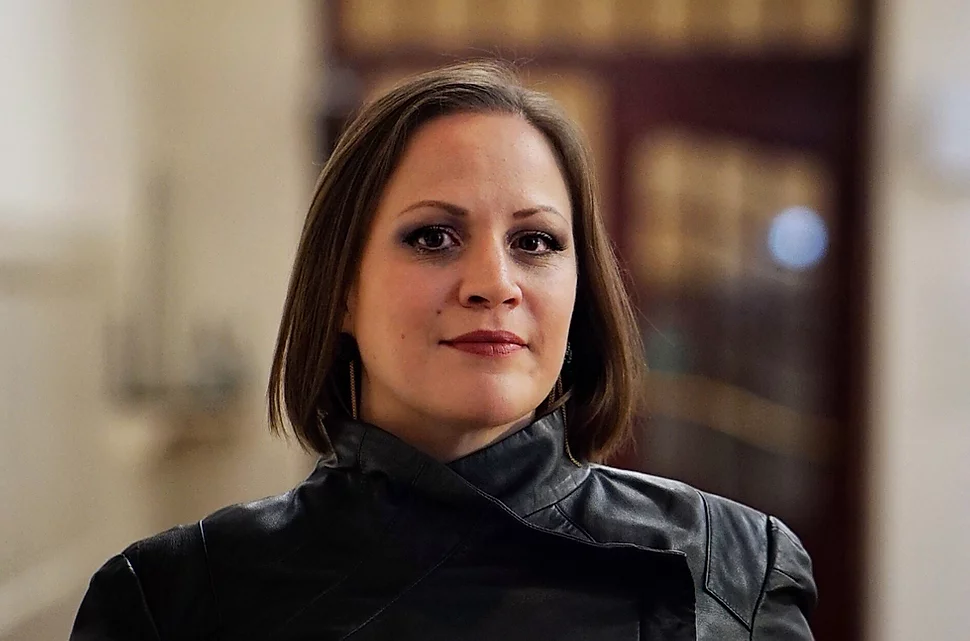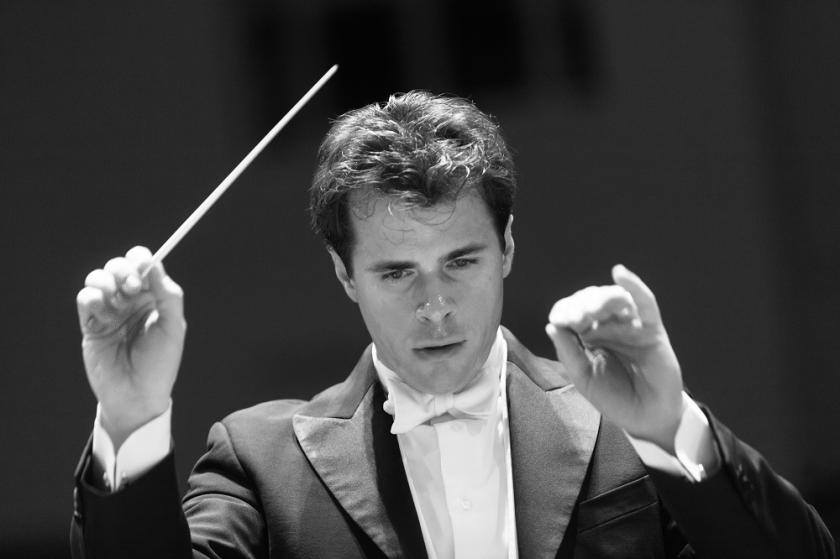So many performances of Mahler's most theatrical symphony every season, so few conductors who have something radically fresh to say about it. Two who do are London Philharmonic Orchestra chief Vladimir Jurowski, perfecting his vision over the years, and now the Philharmonia's Principal Guest Conductor, Jakub Hrůša. With total command, he captures the scope of a monumental canvas, every nuance in the phrasing – quite often it's simply that Mahler's meticulous instructions need following, but how rarely that happens – and pointillist jabs of colour.
The breadth of Hrůša's interpretation – the polar opposite of the last "Resurrection" I heard, Gianandrea Noseda's lightning whizz with the brand-new Pan-Caucasian Youth Orchestra in Georgia – altered perspectives. Usually the first extended vision of heaven we get is in the fourth-movement song based on a folk poem, "Urlicht" ("Primeval Light"), as good as any I've heard here – Jennifer Johnston (pictured below by R T Dunphy) producing the authentic frisson with her pitch-altering first entry after the pell-mell human comedy of the Scherzo, fuller voiced than usual in the upper register, the true contralto. Equally levitational here, however, were the vision that offsets the "funeral rites" at the heart of the first movement, flecked with expressive colour from superlative young oboist Tom Blomfield (a star in the Philharmonia's recent performance of Strauss's Oboe Concerto), cor anglas player Maxwell Spiers and first horn Nigel Black, haloed by softest strings, and the whole of what usually comes over as the "old-fashioned" minuet sequel.
Here hyper-sensitive strings made us hold our breath through each Schubertian round-dance and Hrůša extracted the heavenly humour from the heavenly music-box sequence of pizzicati, piping piccolo and very present harps.It's also worth remembering that like his great mentor, Jiří Bělohlávek, Hrůša hails from the same part of the world as Mahler – not for nothing did Bělohlávek claim the composer as a true Czech – so the moments of rustic wonder do somehow leap out.
Every orchestral principal rose to difficult challenges with compelling individuality, supremely so first trumpeter Christian Barraclough (his offstage counterpart, Jason Evans, touched the metaphysical, too, with two notes at the last trump, magically echoed as ever by the flute family playing at nightingales). Collective punches were never pulled, right from the electrifying opening, and the doomy marching didn't outstay its welcome, even if the Last Judgment hordes were still the aural equivalent of D W Griffiths meeting Keystone Cops.
Then the pianissimo choral entry with the Resurrection Ode - has it ever sounded more mystical? At the other end of the dynamic scale, the men had all the heft of a Welsh male-voice choir. At last the City of Birmingham Symphony Chorus have a rival in a work they've owned, up to now. Soprano Camilla Tilling wasn't in best voice for the rising from the masses, the one less than perfectly articulated sequence; but in the bigger picture and the great final blaze, seismically rocked by the double-basses, that was soon forgotten. And what a joy, at last, to see orchestral musicians showing visible pleasure in their colleagues' work.















Add comment